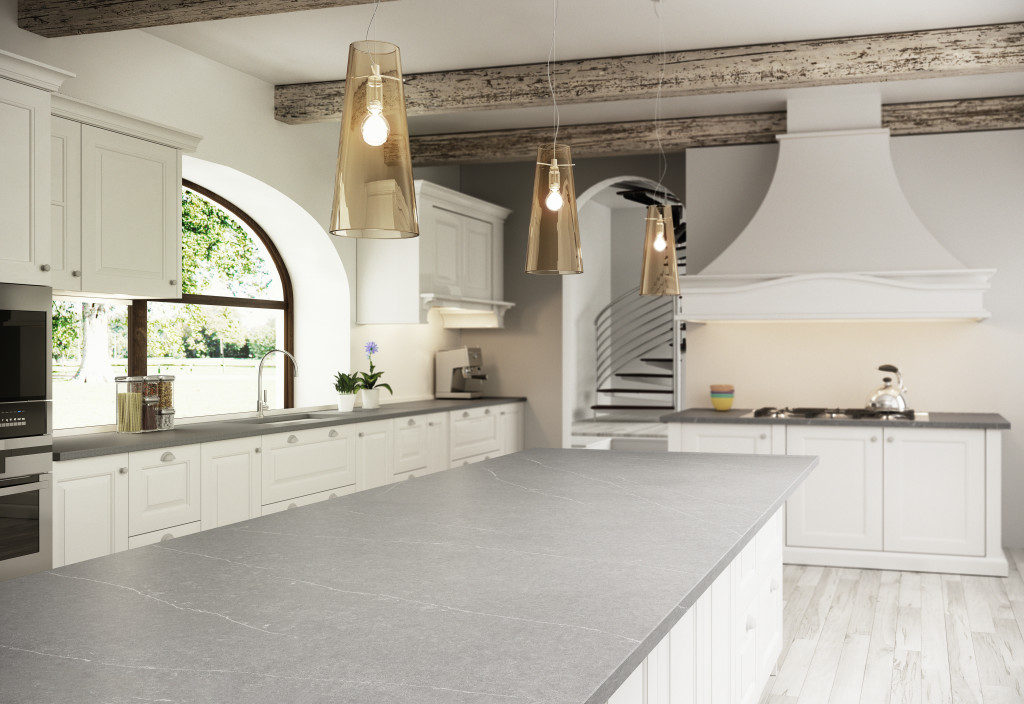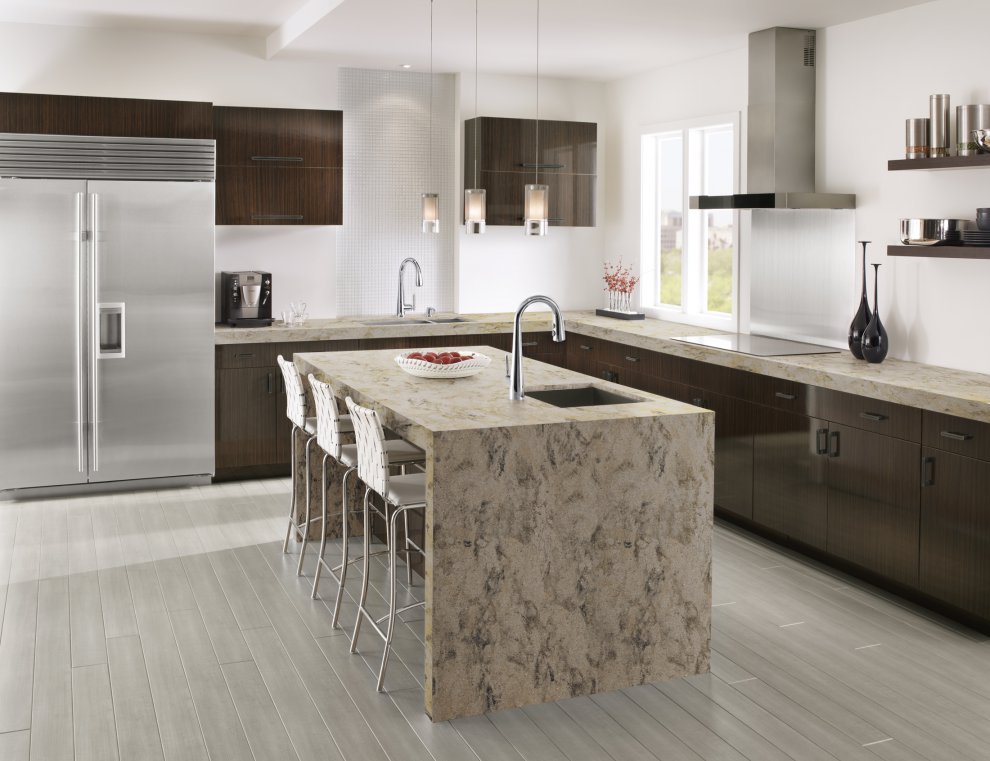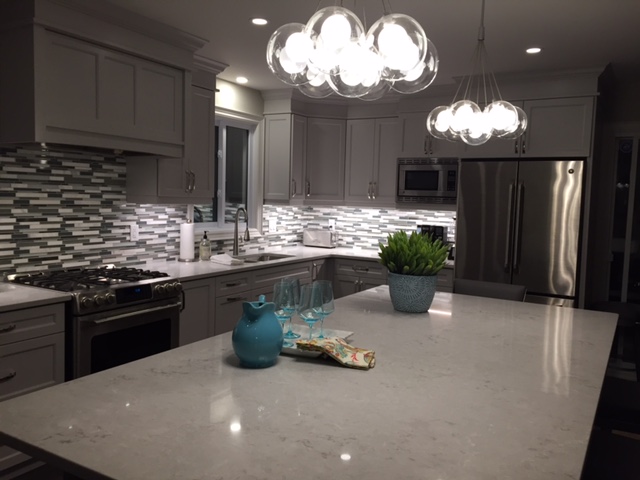Let our experienced staff of Granite & Quartz experts guide you through designing your dream. Our professional installation staff takes pride in ensuring that your final product is perfectly crafted and will last the test of time.


- Granite is a natural stone. Each slab is unique and one of a kind.
- Granite is generally cheaper than quartz. In fact, entry level granites can be $30/sq ft cheaper than quartz, which can really add up in a large kitchen.
- Granite is available in bigger slabs than quartz. This means fewer seams.
- Granite is suitable for outdoor applications like BBQ’s and outdoor kitchens and bars because it can survive the elements and doesn’t fade in the sun.
- Granite can withstand high temperatures. Therefore, you can set a hot pot directly on granite without damaging the surface.

- Granite is porous. Therefore, it needs to be resealed every 2-5 years. But don’t let this deter you. It’s easy. Anybody can do it.
- Although we consider it an asset, granite can have a lot of movement in it. These random veins, swirls and spots can be a drawback for homeowners who don’t want busy countertops.
- Because granite is a natural stone, it can have an imperfect surface. Sometimes there are small pits or fissures that can feel rough when cleaning. This is part of its character.
- Granite is not as strong as quartz. The edges are more prone to chips if you drop something on it.

- Quartz is man-made and has a perfectly smooth surface and consistent and predictable pattern.
- Quartz is low maintenance. Its easy to clean and doesn’t ever require sealing.
- As an engineered product, it is non-porous and therefore doesn’t harbour bacteria.
- Quartz is strong. It breaks less easily during installation and chips infrequently.
- Quartz is scratch resistant and stain resistant, but not totally immune to scuffs and stains.
- Quartz is trendy right now largely due to a design shift to white colours and clean lines in modern and contemporary spaces.

- Quartz is generally more expensive than granite. You can get high-end exotic granites for the same price as entry level quartz.
- Even with advanced technology, the natural beauty and veining of granite are not easy to replicate.
- Quartz slabs are smaller than granite slabs. They are commonly only 56″ high with the biggest jumbo slabs only up to 65″ high. In some cases, this means more seams and can limit the size of your island.
- Quartz is not suitable for outdoor applications as its surface can fade discolour with long-term exposure to sunlight.
- This could be a pro or a con, but quartz always looks the exact same from slab to slab. In other words, your slab will not be unique.

